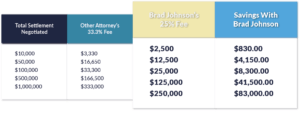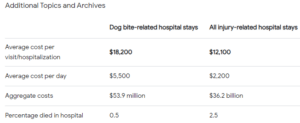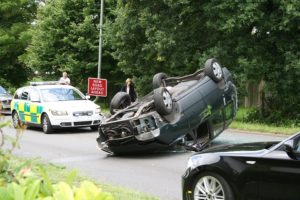After a car accident, you might be tempted to accept a cash payment from the at-fault driver instead of filing an insurance claim. While this may seem like an easy way to avoid paperwork and delays, it can lead to serious financial and legal consequences down the road. Before making a decision, it’s crucial to understand the risks of out-of-pocket settlements and how they could impact your rights.
Understanding Out-of-Pocket Payments in Car Accidents
After a car accident, one of the first concerns for both drivers is how to handle the financial impact. In some cases, the at-fault driver may offer to pay for damages or medical bills out of pocket rather than involving their insurance company. This type of arrangement is known as an out-of-pocket settlement, an informal agreement where the responsible party pays a lump sum in cash or through a personal check instead of filing an insurance claim.
At first glance, accepting an out-of-pocket payment may seem like a convenient and hassle-free solution, especially if the accident appears minor. You may be tempted to agree to this arrangement for several reasons, such as:
- Avoiding an Insurance Claim: The at-fault driver may want to keep the accident off their insurance record to prevent premium increases.
- Faster Resolution: The driver might suggest that cash will cover your repairs or medical expenses immediately, eliminating delays in the claims process.
- Lack of Insurance: In some cases, the other driver may not have insurance at all and prefers to settle the matter privately.
- Minimizing Legal Liability: The driver at fault may fear that a formal claim could lead to additional financial consequences, such as a lawsuit or increased damages.
Legal Implications of Accepting an Out-of-Pocket Settlement
Agreeing to an out-of-pocket settlement after a car accident might seem like a simple way to resolve the situation, but it comes with serious legal risks, especially under Arizona law. While private agreements are not inherently illegal, they can leave you vulnerable to financial loss, liability disputes, and legal complications that may be difficult to undo.
You May Be Waiving Your Right to Future Compensation
When you accept a cash payment from the at-fault driver, you might unknowingly be waiving your right to seek additional compensation later. Even if you realize days or weeks later that your injuries or vehicle damage were worse than initially thought, you may have little to no legal recourse.
Insurance claims and lawsuits allow for ongoing medical expenses, lost wages, and pain and suffering, but a verbal or written agreement to accept an out-of-pocket payment may prevent you from filing a claim. Courts often uphold informal agreements as long as both parties consented, even if it later turns out that the settlement was inadequate.
You Could Be Violating Arizona’s Insurance Requirements
Arizona law requires all drivers to carry liability insurance, and in many cases, an accident must be reported to the Arizona Department of Transportation (ADOT) and law enforcement. If damages exceed $1,000 or someone is injured, drivers are legally required to notify the police.
By settling privately, you may inadvertently break reporting laws, which could lead to penalties, fines, or complications with your own insurance coverage. Additionally, if the at-fault driver was uninsured, accepting a cash settlement does not protect you from legal consequences if they fail to meet Arizona’s minimum liability insurance requirements.
No Guarantee the At-Fault Driver Will Honor the Agreement
Out-of-pocket settlements rely entirely on the other driver’s honesty and willingness to pay. Unfortunately, there is no legal mechanism forcing them to follow through once you leave the scene.
Even if they provide a check, it could bounce or be canceled. If they promise to pay later but fail to do so, you will have no insurance company backing you up. Without a signed and legally enforceable contract, proving the agreement existed can be challenging in court.
Why Some Drivers Offer Cash Instead of Insurance
After a car accident, you might find yourself in a situation where the at-fault driver offers to pay you cash instead of filing an insurance claim. While this might seem like a quick and hassle-free resolution, it’s important to understand why a driver might make this offer and whether it’s in your best interest to accept it.
Avoiding Insurance Premium Increases
One of the biggest reasons a driver may prefer to settle out of pocket is to prevent their insurance rates from going up. Car insurance companies consider any accident, even minor ones, as a risk factor, and drivers who file claims often see an increase in their monthly premiums.
For someone with a history of accidents or previous claims, even a minor collision could result in significant rate hikes or policy cancellation. Instead of risking this, the at-fault driver may offer cash to settle things privately.
The Driver Is Uninsured or Underinsured
In Arizona, drivers are legally required to carry minimum liability insurance. However, some motorists drive without coverage, despite the law. If an uninsured driver causes an accident, they may try to offer cash immediately to avoid legal and financial penalties.
Similarly, some drivers carry only the minimum required coverage, which may not be enough to cover serious damages. Instead of filing an insurance claim that could expose their lack of coverage, they may attempt to resolve the matter privately.
They Were Engaged in Illegal Activity
Sometimes, a driver offering cash might have other legal issues they want to avoid. If the at-fault driver was:
- Driving under the influence (DUI)
- Driving with a suspended or revoked license
- Driving a stolen vehicle
- Transporting illegal substances or goods
- Violating probation or parole
Should You Accept a Cash Settlement?
While accepting a cash offer might seem like an easy way to avoid paperwork and delays, it’s important to consider the risks:
- You may not receive enough compensation to cover your damages.
- You could lose your right to file a claim if injuries or damages are worse than expected.
- The driver might disappear, leaving you without recourse if the payment doesn’t cover your costs.
Arizona Car Accident Laws: What You Need to Know
Arizona follows a fault-based system for car accidents, meaning the at-fault driver is responsible for covering damages. Whether through insurance or legal claims, victims have the right to seek compensation for medical expenses, vehicle repairs, lost wages, and pain and suffering.
Key Arizona Car Accident Laws
- Minimum Liability Insurance
- $25,000 per person for bodily injury
- $50,000 per accident for bodily injury
- $15,000 for property damage (ARS § 28-4009)
- Comparative Negligence: Arizona follows pure comparative negligence rules, meaning your compensation may be reduced if you are partially at fault for the accident (ARS § 12-2505).
- Reporting Requirements: If an accident results in injury, death, or property damage over $1,000, you must report it to law enforcement (ARS § 28-667).
- Statute of Limitations: You have two years from the date of the accident to file a personal injury or property damage lawsuit (ARS § 12-542).
The Role of a Personal Injury Attorney
After a car accident, especially when dealing with out-of-pocket payment offers, hiring a personal injury lawyer can make a significant difference in protecting your rights and securing fair compensation. While settling directly with the at-fault driver might seem quick and easy, it often comes with hidden risks, and that’s where an attorney can step in to ensure you don’t get shortchanged.
Protecting Your Legal Rights
A personal injury lawyer understands Arizona’s car accident laws and can advise you on the best course of action. Many accident victims unknowingly waive their rights by accepting a private cash settlement, only to realize later that their injuries or damages were more serious than they thought.
Accurately Assessing Your Damages
Most drivers offering cash settlements will lowball the amount, hoping you’ll accept without question. However, a personal injury attorney will help you calculate the full value of your claim, including:
- Medical bills (current and future)
- Vehicle repair or replacement costs
- Lost wages due to missed work
- Pain and suffering
- Permanent disability or long-term medical care
Proving Liability & Fault
In Arizona, fault is key in car accident claims. If the other driver disputes responsibility, an attorney can:
- Gather police reports, witness statements, and video footage
- Work with accident reconstruction experts
- Demonstrate how the other driver’s negligence caused the crash
People Also Ask
Is It Legal to Accept an Out-of-Pocket Payment for a Car Accident?
- Yes, but it may violate Arizona’s reporting requirements if the accident involves injury or damages over $1,000.
What Are the Risks of Accepting Cash Instead of Filing an Insurance Claim?
- You may waive your right to future compensation, be stuck with hidden medical expenses, or lose legal protection if disputes arise.
Can I Still File an Insurance Claim After Accepting a Cash Settlement?
- In most cases, accepting payment privately may prevent you from filing a claim later, especially if there’s a verbal or written agreement.
Find the Right Car Accident Attorney
Accepting an out-of-pocket payment after a car accident may seem like a quick fix, but it can leave you vulnerable to unpaid medical bills, hidden damages, and legal complications down the road. Without proper documentation or legal protection, you could be stuck covering costs that should be the responsibility of the at-fault driver. Instead of risking your financial and legal future, let our team at Brad Johnson Injury Law guide you through the best course of action. Contact us today for a free case evaluation, we’ll review your situation, explain your rights, and help you secure the compensation you deserve.



